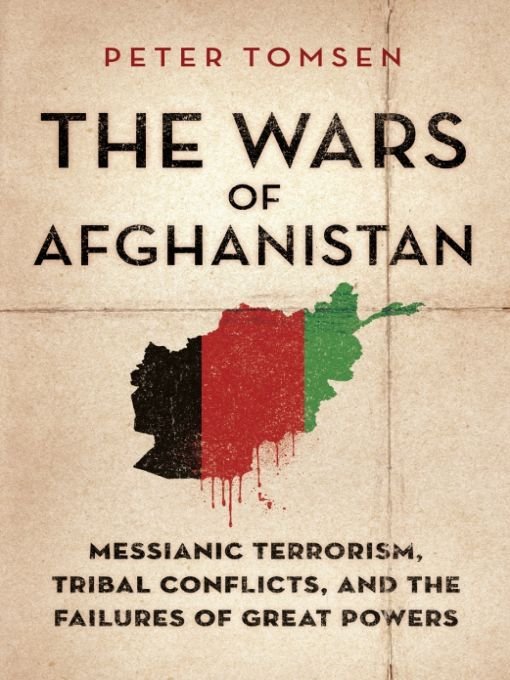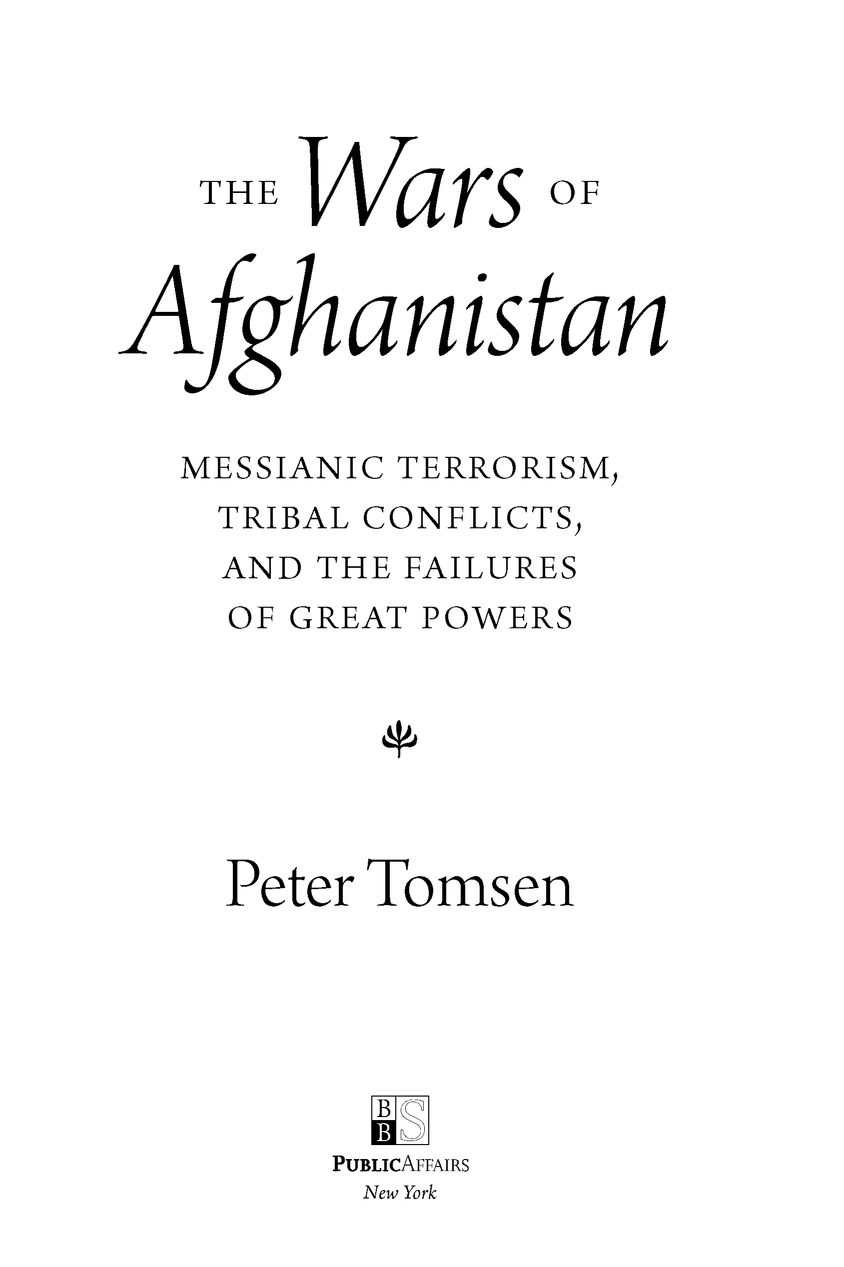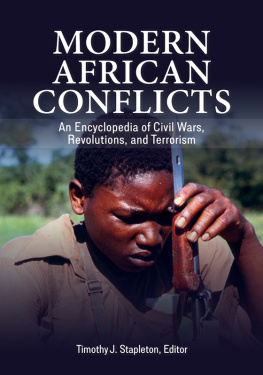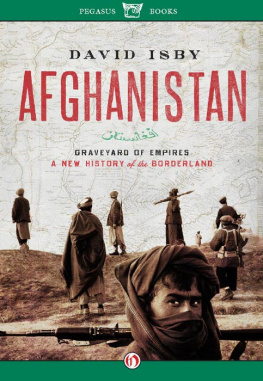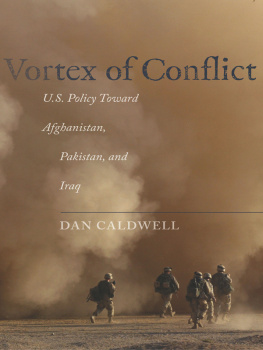Table of Contents
Table of Figures
Dedicated to my amazing wife, Kim
INTRODUCTION
America and its allies are mired in Afghanistans endless war. It is still possible to achieve an acceptable outcome, but only if our policies respect Afghan history and culture and we heed the lessons of past foreign interventions.
That is why I wrote this book.
My motive sprang from concerns for our national interests and the desire of Afghans, Americans, and the broad international community to break the cycle of tragic wars in Afghanistan.
I have been personally involved in Afghan affairs for over two decades, including three years as U.S. special envoy to the Afghan resistance (19891992). This book reflects my firsthand experiences as well as my interviews of other eyewitnesses. It also draws upon the works of scholars, historians, journalists, and diplomats. It plows new ground in over six hundred newly declassified State Department, Pentagon, and CIA documents. It traces the sagas of the major actors since the 1979 Soviet invasion, many of whom I have known well. Where possible, I have presented documentary evidence and references to back up explanations and conclusions. The opinions and characterizations in this book, however, are my own and do not represent official positions of the United States government.

There has been an explosion of documentaries and commentary on Afghanistan since 9/11. But a pervasive ignorance about this unique country and its history, culture, and tribal society persists in the West. Our misreading of the Afghan environment and Pakistans intentions in Afghanistan are the main reasons why America and the international coalition are today bogged down in the Afghan quagmire, wondering how this has happened despite the commitment of over 100,000 troops and $330 billion. If the United States does not change its policies, conditions in Afghanistan will look even worse in 2014 when the American-led combat troop drawdown is tentatively scheduled to end and the next constitutionally mandated Afghan presidential election is to take place.
U.S. policy during the 19801989 Soviet-Afghan war succeeded largely because it resonated with the mainstream aspirations of more than 20 million Afghans to expel the invader. After the Soviet pullout, the United States gradually shifted its attention away from Afghanistan and the region. Washington did not grasp the dangerous implications of Pakistani and Saudi strategy to transform Afghanistan into an extremist Islamic state. That Islamist vision, developed by Pakistani President Zia ul-Haq in the 1980s and carried on ever since by his military successors, contradicts fundamental U.S. interests. It has stymied efforts to end the wars of Afghanistan and combat global terrorism.
After 9/11 Pakistani President Pervez Musharraf formally joined President George W. Bushs war on terrorism. But on the ground, Pakistan clandestinely continued to provide sanctuary, training, and weapons to the Afghan Taliban and Islamic militants to stage a counterattack into Afghanistan. Meanwhile, the United States, after routing the Taliban, once again downplayed Afghanistan. Washington provided minimal assistance to war-devastated Kabul and shifted attention and resources to Iraq. The result was a Taliban resurgence.
Today bin Laden is gone, but al-Qaeda and its allies still view Afghanistan as the major arenaand the first stepin an epochal, twenty-first-century struggle between their extremist version of Islam and moderate Islam. Their strategy targets not only Afghanistan but also the West and pro-Western governments in the Muslim world. Their suicide bombers attack around the world. Some indigenous Pakistani Muslim extremist groups tied to al-Qaeda have turned on the Pakistani state. Meanwhile, many Afghan leaders have failed to overcome their historical proclivity for infighting and placing personal aspirations above unity and stability in their country. Corruption pervades the government. President Hamid Karzais regime is weak and unpopular.
We have suffered not only from poor policy but also from poor process and execution. Unwieldy, compartmentalized bureaucracies in Washington have failed successive Republican and Democratic presidents. As the 9/11 Commission noted in 2004, the current national security system was created after World War II to meet the challenges of a different era and to confront a different enemythe Soviet Union. In the past decade it has been weighed down by vast numbers of employees and splintered by bureaucratic stovepipes. Giant military and intelligence institutions operate like minigovernments, administering their own budgets and sometimes contradictory policies.
The George W. Bush and Barack Obama administrations adopted some of the 9/11 Commission recommendations to improve interagency cooperation toward common goals. But they have not overcome debilitating interagency turf battles. The White House has yet to enforce disciplined implementation of a coherent Afghan policy, even while American men and women are fighting with valor and skill on the battlefield. The Pentagon and the CIA must function as policy-implementers, not policy-makers. They are indispensable to winning wars. They should participate in the deliberation process. But after decisions are made, their military and intelligence assets should concentrate on executing the policy.

The opening chapters of this book describe the historical forces that have forged contemporary Afghanistan, its tribal system, its traditions, and a moderate Islamic faith. They discuss the ethnic and tribal frictions that divide Afghans, and they explain the center-region equilibrium that mid-twentieth-century Afghan monarchs created to maintain stability and promote nation-building. During that half-century, the government in Kabul established a cooperative relationship with autonomous tribal and religious forces in the countryside. The center gradually extended its influence into the provinces and expanded the national army and police force. That structure holds the key to stabilizing the country today.
Part Two covers the wars of Afghanistan during the fourteen-year Afghan communist era, drawing on fresh material from the Soviet archives. The last chapter in this part describes Pakistani dictator Zia ul-Haqs vision to establish strategic depth against India by creating Pakistani hegemony in Afghanistan after the Soviet withdrawal. Since Zias death in 1988, his successors have collaborated with Pakistani and Arab extremists to insert foreign versions of Islamic extremism into Afghanistans fundamentally moderate tribal society. The Saudi government supported this futile venture during the 1980s and early 1990s, but then turned against the extremists when al-Qaeda began to threaten the Saudi kingdom in 1998.
Part Three shifts to a first-person narrative account of my three-year immersion in Afghanistan as President George H.W. Bushs special envoy to the Afghan resistance. I draw on declassified U.S. government documents to describe what happened during those pivotal years. There are firsthand accounts of my meetings with Mujahidin politicians and commanders, the former Afghan king Zahir Shah in Rome, Pakistani intelligence officers and other Pakistani officials in Islamabad, Saudi princes in Riyadh and Jeddah, and Soviet officials in Moscow.

